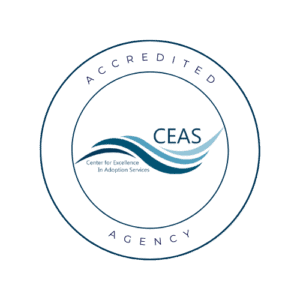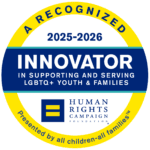公民法可能会让被收养者和养父母感到困惑。以下是来自 美国公民及移民服务局 (USCIS) 网站 帮助您为国际收养者获得公民身份。以下所有信息均来自 USCIS,而非 Spence-Chapin。请访问他们的网站了解更多信息: https://www.uscis.gov/adoption/bringing-your-internationally-adopted-child-united-states/us-citizenship-adopted-child
通常可作为被收养儿童美国公民身份证明的文件
| 美国护照* | 由美国国务院 (DOS) 发布 | 访问 旅游州政府 了解更多信息,包括完整说明、当前费用和申请。 |
| 美国公民证书 | 由美国公民及移民服务局 (USCIS) 颁发 | 访问 美国公民及移民服务局 了解更多信息,包括完整说明、当前费用和申请。 |
*所有护照申请人必须证明其美国公民身份和身份才能获得美国护照。公民证书通常足以为被收养的孩子申请并获得美国护照。如果被收养的孩子没有收到公民证书,您必须提交其他获得公民身份的证明,包括最终收养判决书的认证副本(如果不是英文的,还需提供翻译件)以及孩子在 18 岁以下时符合《移民和国籍法》(INA)第 320 条规定的所有条件的证据。
笔记: 一些联邦机构可能会检查移民系统以核实公民身份。除非家庭获得公民身份证明,否则 USCIS 系统不会更新儿童的公民身份。
入境美国后获得合法永久居留权或公民身份
根据《移民与国籍法》第 320 条,被收养的儿童如果在年满 18 岁之前满足以下条件,则在进入美国后将自动获得公民身份:
- 符合 INA 101(b)(1)(E)、(F) 或 (G) 规定的“直系亲属”资格,
- 被接纳为永久居民,并且
- 居住在美国并受美国公民父母的合法及实际监护。
INA 第 320 条于 2001 年 2 月 27 日生效,当时《2000 年儿童公民法案》(CCA)签署成为法律。儿童在生效之日必须未满 18 岁才能享受 CCA 的福利。
笔记: 如果孩子没有从原来的准父母或养父母那里获得公民身份,但如果孩子后来被不同的美国公民父母收养,该孩子仍然有资格获得公民身份,前提是他们符合《移民与国籍法》第 320 节中的所有要求。
如果孩子进入美国后没有资格自动获得公民身份,他们将成为合法永久居民 (LPR),一旦满足 INA 320 的所有条件,他们就可能成为美国公民。如果不满足要求,孩子仍然是 LPR,一旦符合条件,就可以根据 INA 316 申请入籍。下表概述了签证分类、获得被收养儿童美国公民身份证明的流程,以及通常作为被收养儿童美国公民身份证明的文件。
获得公民证书
如果被收养的孩子入学时不符合公民身份证明的资格,但只要您的孩子符合资格要求,您仍可以申请公民身份证明。您必须遵循不同的流程来申请公民身份证明,具体取决于被收养的孩子是与美国公民父母一起居住在美国境内还是境外。
- 一般资格: (请参阅下表以获取更具体的指导。)
- 被收养的儿童符合《移民与国籍法》第 101(b)(1)(E)、(F) 或 (G) 条规定的儿童定义;
- 在满足所有条件的情况下,儿童未满 18 岁;并且
- 孩子必须至少有一位美国公民父母(通过出生或入籍)。
| 孩子将居住 里面 美国
(根据《移民及海关法》第 320 条申请美国公民身份) |
孩子将居住 外部 美国
(根据《移民及海关法》第 322 条申请美国公民身份) |
| 如何获得公民证书
文件 N-600 表格,公民证书申请表. 其他要求:
笔记: 有关所需证据、费用和提交地点的信息,请参阅 N-600 表格提交说明。如果被收养的孩子在进入美国时获得了 IH-3 或 IR-3 签证并满足所有 INA 320 要求,则该孩子将自动获得公民证书,无需提交 N-600 表格。 |
如何获得公民证书
文件 N-600K 表格,根据第 322 条申请公民身份并签发证书. 其他要求:
笔记: 在 N-600K 表格中,申请人可以要求在特定的 USCIS 办公室或首选城市和州进行面谈,以及在提交 N-600K 表格后至少 90 天的首选面谈日期。USCIS 收到并处理表格后,USCIS 将向家庭发送预约通知,让他们于特定日期到国内 USCIS 外地办事处进行面谈。家庭可以为孩子申请 B-2 签证或其他可用的非移民签证,以便前往美国,但必须支付所需费用。如果孩子获得移民签证并以 LPR 身份入境,但不居住在美国,则不需要非移民签证。家庭可以在处理其收养案件的同一岗位申请签证,如果他们目前居住在其他国家,则可以在另一个岗位申请。 |
军队/军人和美国政府雇员的子女
- 美国公民军人的养子女在随父母出国执行公务时,如果符合 INA 322 的条件,则可以申请入籍,而无需亲自到美国办理任何手续。
- 此外,如果父母是美国公民并且是军人,那么他们根据官方命令在国外居住的任何时间都可以算作在美国实际居住的时间。
- 获得 IR-3 或 IH-3 签证的军人或美国政府雇员的养子女,在入境时将有资格自动获得公民证书,即使他或她打算返回国外;前提是满足 INA 320 下的所有其他条件。
- 获得 IR-2 签证的军人或美国政府雇员的养子女不会自动获得公民证书,但父母可以在入学后提交 N-600 表格或 N-600K 表格(即使他们打算返回国外),前提是满足 INA 第 320 条或第 322 条规定的所有其他条件。
*笔记:本页信息仅供参考。图表概述了与被收养儿童有关的公民身份问题,本页并非权威政策文件。个案事实将逐案审查和裁定。本页无意、不会、也不得被依赖来创建任何权利或利益,无论是实质性的还是程序性的,可在法律上强制执行,或由任何个人或其他方在驱逐程序中、在与美国的诉讼中或以任何其他形式或方式强制执行。最后修订日期:2016 年 9 月 2 日。
以上信息来自美国公民及移民服务局 (USCIS) 网站,用于指导国际收养者获得公民身份。所有信息均来自 USCIS,而非 Spence-Chapin。请访问他们的网站了解更多信息: https://www.uscis.gov/adoption/bringing-your-internationally-adopted-child-united-states/us-citizenship-adopted-child.





